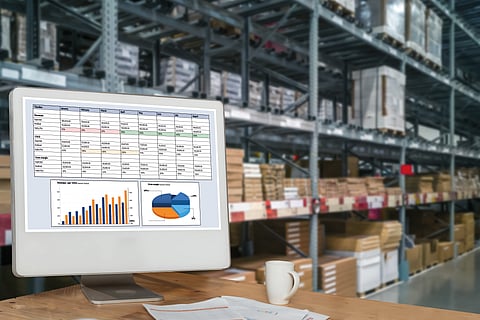Why smart accounting is key to compliance
Streamlined and tech-enabled accounting processes can offer visibility and control

With corporate tax now in effect, accurate, real-time financial management has become essential not just for large corporations but for SMEs and start-ups operating on leaner resources. Investing in robust accounting software is increasingly seen as a strategic move. These platforms consolidate key accounting functions, automate expense tracking, and ensure timely tax compliance, cutting down on errors and inefficiencies that could otherwise be costly.
Industry experts highlight that accounting, tax filing, and payroll systems must now work together seamlessly as this integration is vital for data integrity and operational agility.
“In the era of UAE corporate tax, accounting software transcends mere calculation; it’s the bedrock of data integrity and timely reporting. It provides the crucial, real-time financial insights businesses need to navigate compliance accurately and confidently,” says Kinnari Rahul Doshi, Managing Partner at N R Doshi & Partners.
A unified platform that eliminates data silos helps minimise manual errors and offers a full financial picture, vital for smart decision-making.
“Integrating payroll and accounting ensures that all employee-related expenses are accurately recorded in the financial statements,” says Vijaya Mohan, Managing Partner, Evas Constantin.
“Likewise, automatic tax calculations and filing based on up-to-date payroll data simplify compliance with tax regulations. This integration not only saves time but also helps avoid costly mistakes and penalties.”
Things to consider
When choosing accounting software, tax compliance features should top the checklist. “SMEs must look for features including configurable tax rules, income thresholds, and disallowed expense settings, along with IFRS-compliant financial reporting,” advises Gopu Rama Naidu, Managing Partner, KGRN Chartered Accountants.
Rama Naidu also highlights the importance of adaptability: “Regular updates to reflect FTA regulations, and the ability to export audit-ready reports in accepted formats like PDF, Excel, or XML, are critical.”
Alongside corporate tax, the software should also support VAT compliance.
“The ideal solution automates tax calculations in line with UAE laws, generates FTA-compliant tax invoices on demand, and offers real-time reporting with audit-ready record-keeping,” says Mostafa Elrefaey, CEO of Integrity Accounting Services. These combined features ensure every transaction feeds directly into tax calculations, significantly reducing manual intervention and the risk of misfiling.
Scalability is another non-negotiable. As businesses grow and transaction volumes rise, the chosen software must be able to handle larger data loads without compromising performance.
Experts also stress the importance of strong security. Since these systems store sensitive financial and employee data, businesses must ensure the software meets international data protection and cybersecurity standards.
With compliance demands rising, accounting software is now doing far more than just balancing books. It’s becoming a core strategic asset in the UAE’s corporate tax era. ■



